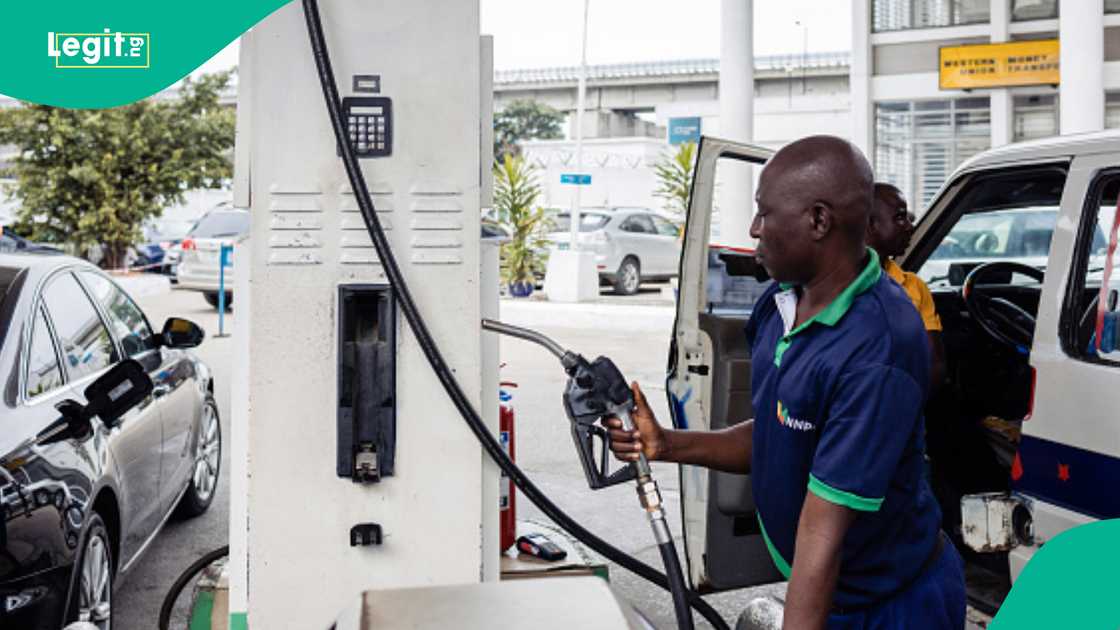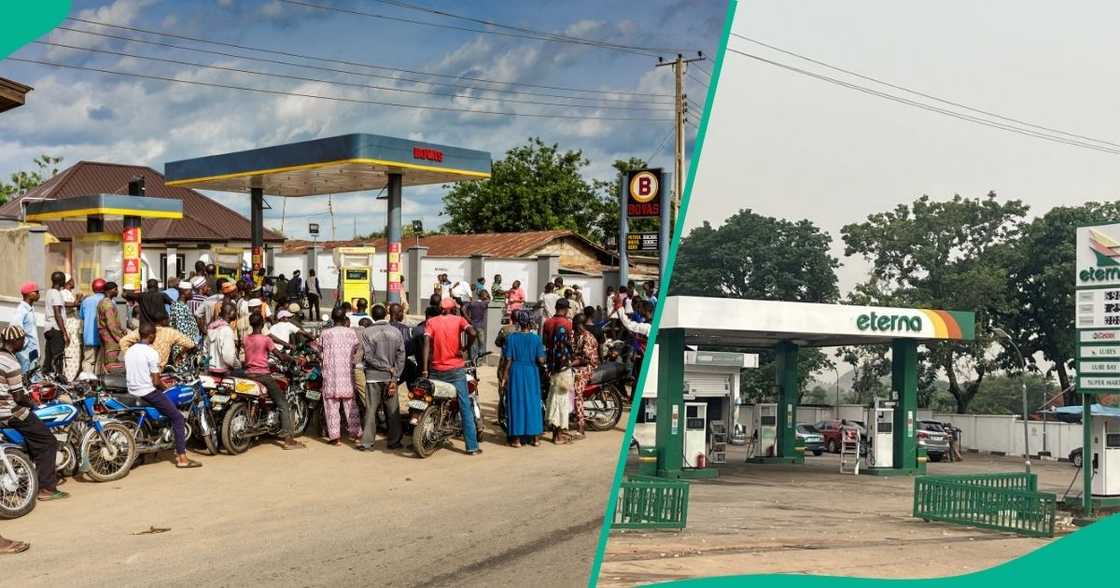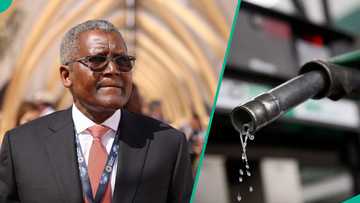Petrol Prices Crash as Dangote Refinery’s Bold Move Forces Depots to Slash Rates
- Petrol prices have dropped in the depots following the recent rate slash by Dangote Refinery
- Depot owners have reportedly been forced into a corner by the refinery's strategic move to control the market
- Data from the depots show that several importers have caved in to Dangote's price cuts to maintain profitability
Pascal Oparada, a reporter for Legit.ng, has over ten years of experience covering technology, energy, stocks, investment, and the economy.
Nigeria’s downstream oil sector is bracing for a seismic shift as Dangote Petroleum Refinery sets its petrol gantry price at ₦820 per litre, effective Monday, September 15, 2025.
The refinery’s direct supply of Premium Motor Spirit (PMS) — complete with free nationwide delivery- is already disrupting depot pricing.

Source: Getty Images
Depots forced into early price cuts
By absorbing logistics costs, typically an extra ₦10–₦20 per litre, Dangote has redefined the rules of engagement in the market.
Expected pump prices are projected to stabilise at ₦841 in Lagos, Ogun, Oyo, Ondo, Osun, and Ekiti, while Abuja, Rivers, Delta, Edo, and Kwara may see prices hover around ₦851.
The ripple effect was immediate. Independent depots in Lagos, Calabar, and Port Harcourt began slashing prices to stay competitive ahead of Dangote’s rollout:
- Lagos: WOSBAB dropped from ₦848 to ₦836; AITEO from ₦845 to ₦836; MENJ from ₦846 to ₦838.
- Calabar: SOROMAN slashed prices from ₦853 to ₦843.
- Port Harcourt: MASTERS trimmed rates from ₦869 to ₦864.
In Lagos alone, WOSBAB’s ₦12 cut highlights how aggressively depots are repositioning. Calabar’s move underscores regional adjustments to counter Dangote’s logistics-free pricing model.
Competitive pressure redefines supply chains
By eliminating delivery charges, Dangote is undercutting one of the main revenue streams for depot operators.
This strategy not only appeals to marketers eager for cheaper, reliable supplies but also forces rivals to rethink efficiency in a market long dominated by transport mark-ups.
According to PetroleumPriceNG, Industry analysts say the strategy could accelerate consolidation among depots, as smaller players may struggle to sustain operations under the new pricing regime.
NUPENG frictions lurk in the background
Despite the enthusiasm, Dangote’s rollout has not been free of controversy.
The Nigeria Union of Petroleum and Natural Gas Workers (NUPENG) has expressed concerns over labour practices at the refinery, particularly around the exclusion of unionised workers in parts of the supply chain.
While the refinery has pushed ahead, prolonged disputes with NUPENG could lead to industrial actions or distribution disruptions — potentially offsetting consumer benefits from lower prices.
What it means for Nigerians
For petrol station owners, Dangote’s entry into direct distribution offers access to cheaper, more consistent supplies, boosting competitiveness. For consumers, the early depot price cuts signal possible relief at the pump.
But the long-term picture is complex. If Dangote expands aggressively into more territories, smaller depots may fold, reshaping Nigeria’s downstream sector.
At the same time, unresolved labour tensions could ignite fresh instability in fuel distribution networks.
The bigger picture: What’s ahead?
Dangote’s September 15 launch is more than a pricing change; it is the beginning of a reshaping of Nigeria’s PMS supply chain.

Source: Getty Images
Consumers may cheer falling prices, but industry players are bracing for a battle over market share, labour rights, and the future of fuel distribution in Africa’s largest economy.
Depot owners clash with Dangote Refinery
Legit.ng earlier reported that the Depot and Petroleum Products Marketers Association of Nigeria (DAPPMAN) has debunked the assertion by Dangote Refinery that it can meet Nigeria’s domestic fuel supply needs.
DAPPMAN said that its members and other depots still control petrol supply across Nigeria, with over 68% dominance.
DAPPMAN’s executive secretary, Femi Adewole, said depot owners are responsible for about 68% of fuel supply nationwide, relative to Dangote’s 22%.
Source: Legit.ng




